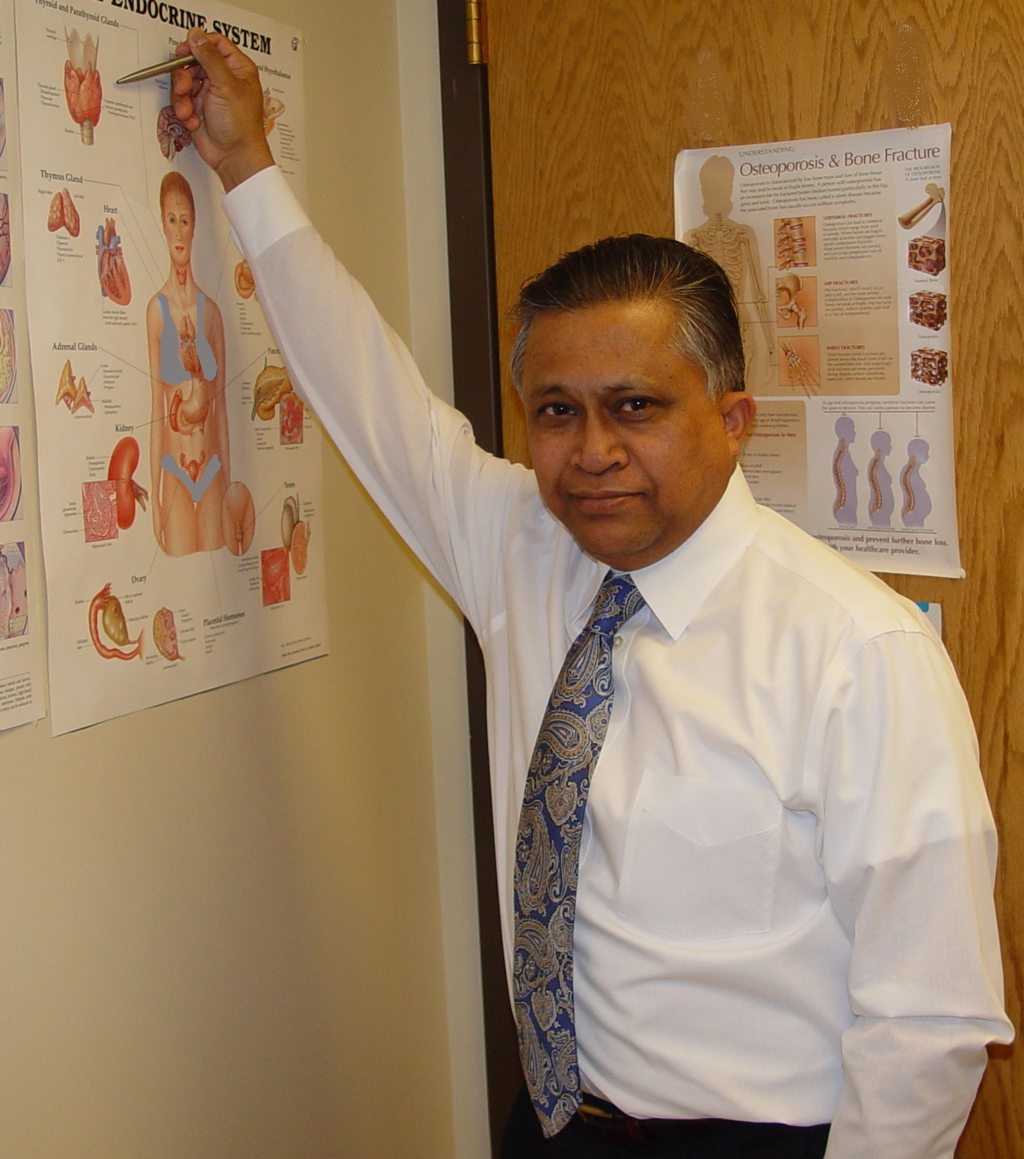
January Is Thyroid Awareness Month
The following is from Dr. Sarvesh Rajan, endocrinologist at Penn Highlands Endocrinology
There is a small gland that is butterfly-shaped gland located in the front of your neck. It consists of two lobes and a bridge that connects them. It lies just under the skin and in front of the windpipe. For being so small, it’s very important.
That gland is the thyroid, and it has its own month! January is National Thyroid Awareness Month.
Why is it important? The thyroid is the body's largest single organ specialized for endocrine hormone production. Its function is to secrete an appropriate amount of thyroid hormones, primarily T4, and a lesser amount of T3.
Thyroid hormones promote growth and development, and regulate heart rate, intestinal movement, the body's energy balance and ultimately weight.
How does it work? The thyroid gland utilizes iodine to synthesize thyroid hormone. It has a very efficient system to trap the iodine floating in the blood to make thyroid hormones.
Iodine is an element, and your body doesn’t make it. You need to eat it in your daily diet.
Daily iodine requirements for children are 50-100 mcg. Adults require 100 mcg, and pregnant and lactating women need about 200 mcg daily. If iodine requirements are not adequate, the thyroid gland cannot produce enough thyroid hormone.
Good sources of iodine are salt, bread, seafood and other baked goods. Unfortunately, iodine is not required to be listed on packaging in the U.S., and can be hard to identify in foods.
But your body will know if it has enough or not, and it will react. If the gland is trying to work harder to synthesize thyroid hormone, the thyroid gland can enlarge which is known as goiter. If the gland is also unable to make enough amounts of thyroid hormone, it is known as hypothyroidism. When the thyroid gland is making too much hormone, this condition is known as hyperthyroidism.
Goiters
An enlarged thyroid gland is known as goiter. With thyroid gland disorders, the problem could be in the size of the gland itself or the amount of the thyroid hormone made by the gland. The thyroid gland could be inflamed - known as thyroiditis.
But the problem with a goiter is more than how it looks or an increase in neck pressure. This could lead to difficulty breathing or difficulty in swallowing.
If the thyroid gland has lump of nodule on the gland, may need to be evaluated for thyroid cancer. This may include a needle biopsy on the thyroid gland. For any of the above symptoms, further evaluation with a healthcare provider may be needed.
Hypothyroidism
When the gland is making a lesser amount of thyroid hormone, this condition is known as hypothyroidism.
Less amounts of thyroid hormone in the body leads to slowing of the metabolism. Symptoms of thyroid hormone deficiency may develop-including fatigue, cold sensitivity, muscle cramps, weight gain, slow heart rate, dry skin, brittle nails, constipation and even low blood count. If it is confirmed that the thyroid gland is underactive, thyroid hormone replacement therapy may be indicated.
Hyperthyroidism
When the thyroid gland is making too much hormone, this condition is known as hyperthyroidism. This leads to a generalized acceleration of metabolism. Thyroid hormone excess may lead to these symptoms nervousness, weight loss, rapid heart rate, tremors, sweating, heat intolerance, muscle weakness or bulging of the eyes.
Help
There is help available. If any of the above thyroid conditions affect the thyroid gland, proper evaluation should be considered. Many different options are available to manage and treat thyroid gland problems.
It’s when the thyroid condition is not properly diagnosed and treated adequately that it may impact how you feel on day-to-day basis.
Start with initial thyroid testing initiated by your primary care provider. If needed, further consultation could be obtained from a provider specializing in thyroid disorders, such as Penn Highlands Endocrinology which has offices in DuBois, Clearfield, Philipsburg, Punxsutawney and St. Marys.
Getting the right balance of hormones in the body is very important. It can make a difference in how you feel and for your health now and the rest of 2017.

